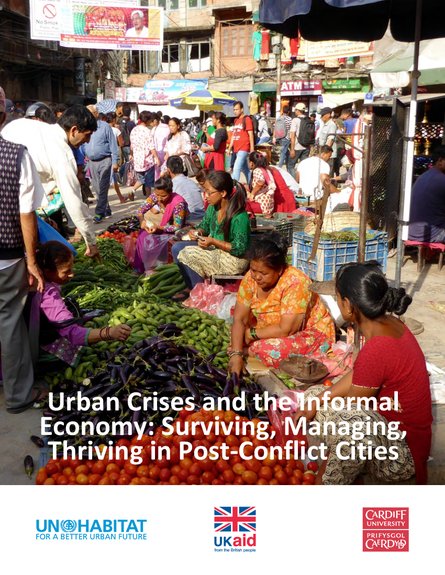
Political upheaval or violent conflict is often characterised by a fundamental failure of governance, and the destruction of local economies, and yet in the aftermath of conflict people reconstruct their livelihoods and rebuild urban services through informal mechanisms of survival and support. This report explores the response of the urban informal economy to urban crises, its role in poverty reduction, peace building and development in post-conflict cities, and its scope as a platform for economic recovery and resilience. With a focus on urban areas in post-civil war settings, and on cities affected by ongoing turf wars, the research explores the complex drivers of conflict and the resilience and recovery of the informal economy. The report is a synthesis of a three-year research project on Economic Recovery in Post-Conflict Cities: The Role of the Urban Informal Economy, funded under the DFID-ESRC Joint Fund for Poverty Alleviation Research (Project ES-M008789-1). Fieldwork was carried out in five cities: Cali, Colombia; Dohuk, N. Iraq; Hargeisa, Somaliland; Karachi, Pakistan, and Kathmandu, Nepal. Each city was selected to explore the different facets of conflict and violence in order to study the informal economy’s crisis response in the widest possible contexts
Links
Resource collections
- Somalia humanitarian response
- UN Habitat - Urban Response Collection
- Urban Response - Urban Crisis Preparedness and Risk Reduction
- Urban Response Collection - Community Engagement and Social Cohesion
- Urban Response Collection - Economic Recovery
- Urban Response Collection - Environment and Climate Change
- Urban Response Collection - Housing, Land and Property
- Urban Response Collection - Urban Crisis Response, Recovery and Reconstruction
- Urban Response Collection - Urban Resilience